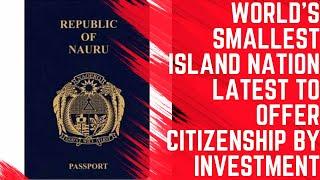
What is Maritime Law? Elements of Admiralty Law Explained | BoatLaw, LLP
BoatLaw, LLP Partner, Nick Neidzwski, dives deeper into the subject of the elements of admiralty law Our law firm proudly serves the west coast including Washington, Oregon, California and Alaska. Call 1-800-BOATLAW today for more information.
Transcription:
"a question we frequently get is what is maritime law maritime law law of the sea is a unique collection of law based upon common law judge made law developed by courts and statutory law enacted by Congress over the past centuries some of our maritime law comes from England some Maritime principles that still apply today applied 200 years ago it's a truly historical area of law but an area of law that is still constantly changing for maritime law to apply three main elements need to be met first the incident must occur on navigable Waters of the United States second the incident must have the potential to disrupt Maritime Commerce third the incident must bear a substantial relationship to a traditional Maritime activity what's navigable water of the United States a definition used by courts is water that is subject to the ebb and flow of Tides or water that is presently used or historically used for Interstate or foreign Commerce the second element whether the incident has the potential to disrupt Maritime Commerce really focuses on that word potential the incident does not actually have to disrupt Maritime Commerce instead you look at not the particular circumstances but the general conduct of the incident and the court makes a determination whether it has the potential to disrupt Maritime Commerce a case comes to mind where there is a fire on board a vessel at a dock the fire however did not spread to other vessels did not spread to the dock but the court ultimately determined that maritime law applied because the incident had the potential to disrupt Maritime Commerce the last element whether the incident has a substantial relationship to a traditional Maritime activity sometimes is very easy to determine for example fishing fishing is a traditional Maritime activity an incident occurring on or around a commercial fishing vessel is going to be governed by maritime law two swimmers however not connected to a vessel may not have that third element met a recreational diver going into the water with no connection to a vessel Also may not have that third element met an airplane crash in navigable water can be governed by maritime law and also cannot be it depends on the nature of the flight for example most international flights over oceans could be governed by maritime law because they are essentially replacing what a vessel would have done they are transporting people from point A to point B over navigable water and if tragically that Airline crashes in navigable water in an ocean that's going to be likely governed by maritime law versus a plane that is not just transporting people over navigable water but just happens to crash in navigable water or a plane that is used for sport or for Aviation purposes that just happens to crash in navigable water that may not be governed by maritime law a lot of times it comes down to whether there's a vessel involved"
https://www.boatlaw.com
Transcription:
"a question we frequently get is what is maritime law maritime law law of the sea is a unique collection of law based upon common law judge made law developed by courts and statutory law enacted by Congress over the past centuries some of our maritime law comes from England some Maritime principles that still apply today applied 200 years ago it's a truly historical area of law but an area of law that is still constantly changing for maritime law to apply three main elements need to be met first the incident must occur on navigable Waters of the United States second the incident must have the potential to disrupt Maritime Commerce third the incident must bear a substantial relationship to a traditional Maritime activity what's navigable water of the United States a definition used by courts is water that is subject to the ebb and flow of Tides or water that is presently used or historically used for Interstate or foreign Commerce the second element whether the incident has the potential to disrupt Maritime Commerce really focuses on that word potential the incident does not actually have to disrupt Maritime Commerce instead you look at not the particular circumstances but the general conduct of the incident and the court makes a determination whether it has the potential to disrupt Maritime Commerce a case comes to mind where there is a fire on board a vessel at a dock the fire however did not spread to other vessels did not spread to the dock but the court ultimately determined that maritime law applied because the incident had the potential to disrupt Maritime Commerce the last element whether the incident has a substantial relationship to a traditional Maritime activity sometimes is very easy to determine for example fishing fishing is a traditional Maritime activity an incident occurring on or around a commercial fishing vessel is going to be governed by maritime law two swimmers however not connected to a vessel may not have that third element met a recreational diver going into the water with no connection to a vessel Also may not have that third element met an airplane crash in navigable water can be governed by maritime law and also cannot be it depends on the nature of the flight for example most international flights over oceans could be governed by maritime law because they are essentially replacing what a vessel would have done they are transporting people from point A to point B over navigable water and if tragically that Airline crashes in navigable water in an ocean that's going to be likely governed by maritime law versus a plane that is not just transporting people over navigable water but just happens to crash in navigable water or a plane that is used for sport or for Aviation purposes that just happens to crash in navigable water that may not be governed by maritime law a lot of times it comes down to whether there's a vessel involved"
https://www.boatlaw.com
Тэги:
#admiralty #maritime #lawyer #attorney #injured #sea #boat #vessel #fishing #tug #barge #oil #rig #accident #Washington #Oregon #California #Alaska #boatlaw #Anderson #Carey #Williams #Neidzwski #LLPКомментарии:
ARI INI SHIRINLIGI
Roziya cooking house
¿Qué son los Medicamentos Biológicos y Biosimilares?
AmerGastroAssn
NOVO VÍDEO ESTRELA LILIANA
Lil Wayne Moz Official


























